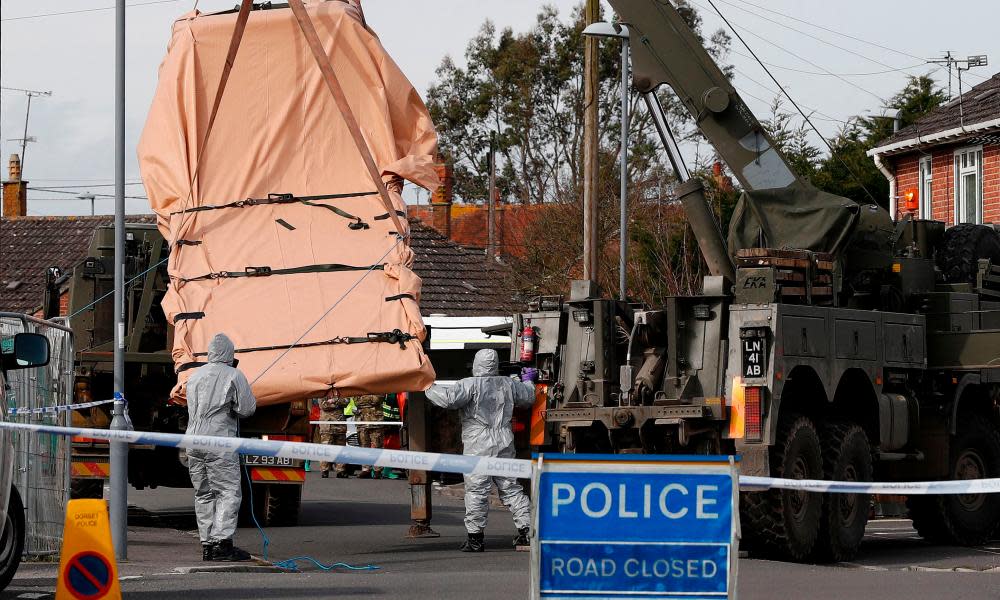May's modest response to Skripal attack will not deter Russia

Theresa May had promised a robust response to the poisoning of Sergei Skripal and his daughter, Yulia. But in the end the prime minister’s measures against Russia, unveiled to the House of Commons on Wednesday, were modest – at “the very low end of acceptability”, as one former Foreign Office adviser put it.
True, the UK is expelling 23 Russian diplomats from London. All of them are professional spies, or “undeclared intelligence officers” as May said. This will deal a temporary setback to the Kremlin’s expansive espionage operation in Britain. But it will not stop Russian spying, or roll up the network of unaccredited “illegals” who exist undercover.
May said the government would enact new laws allowing it to detain individuals arriving on Britain’s borders suspected of “hostile state activity”. In other words, potential assassins arriving from Moscow. It will also step up checks on private aircrafts and freeze Russian assets that might be used to harm British citizens.
These measures are logical but they won’t stop future plots. In 2006 a vigilant police constable questioned Andrei Lugovoi and Dmitry Kovtun when they got off a plane. He checked their names against a police database. There were no hits and reluctantly he let them go. Several hours later they tried to poison Alexander Litvinenko, and two weeks after that they finished the job.
Officials in Moscow will care little about the absence of British royals and ministers from this summer’s World Cup in Russia. Nor will they break into a sweat over May’s claim that Russia was behind Skripal’s poisoning, or the promise to sever top-level bilateral contacts. Russia’s foreign minister, Sergei Lavrov, makes no secret of his loathing for the UK.
The Kremlin’s strategy is to tough this crisis out. The Russian embassy hit back at what it called a “hostile action”, “totally unacceptable, unjustified and shortsighted”. Ministers in Russia will noisily pursue this theme up until Sunday’s presidential election – which Vladimir Putin will comfortably win – and beyond.
There is one area where the Russian elite is vulnerable. It keeps its money in the west, with much of it laundered in London and via UK corporate entities and banks. Unlike in Soviet times when apparatchiks enjoyed superior Moscow apartments, Putin’s friends are multibillionaires, with yachts, villas, planes and other international assets.
An entire class of British professionals service Russia’s super-rich. They include lawyers, public relations executives, real estate firms, headmasters and accountants. It is this last group which sets up complex offshore-managed structures used for the purposes of money laundering. They went unmentioned by May.
And on the question of what to do about Russian cash, May was vague. The measures she suggested on Wednesday were aspirational. They included bringing to bear the capabilities of law enforcement against “serious criminals and corrupt elites”. This happens already. But hard-pressed officers from the National Crime Agency admit prosecuting wealthy perpetrators is difficult and time-consuming.
May could have frozen the luxury properties of tycoons such as Alisher Usmanov or Igor Shuvalov, Russia’s deputy prime minister, whose handsome London flat overlooks the Ministry of Defence. She didn’t. Oligarchs, of course, are not officials. But they are useful intermediaries who enjoy their fortunes at Putin’s pleasure.
The most charitable interpretation of May’s response is that she is leaving herself wriggle room. Should Skripal or his daughter die, she can take further action – such as the expulsion of Russia’s hardline ambassador, Alexander Yakovenko. Meanwhile, British citizens in Moscow can expect a torrid few days and months.
Nothing May has announced is likely to deter Putin from future adventures similar to what happened in Salisbury. Justly or not, he will interpret May’s remarks on Wednesday as proof of what he concluded long ago: that Britain is lacking in allies and weak.


